Over the next few months I’ll be chatting with authors who, like me, write Family Sagas, (#familysaga) a genre that can cover many countries, years and cultures.I am thrilled that so many excellent writers have agreed to meet here with me. I’m sure you’ll find them as fascinating as I do. All I can say is watch this space. Your TBR list of books will be toppling over!!
Today I’m with Terry Tyler. I first met Terry through Twitter after I’d read and reviewed Kings and Queens for #RBRT. Since then I’m always waiting for her next book… and the next. Good job she’s such a prolific author.
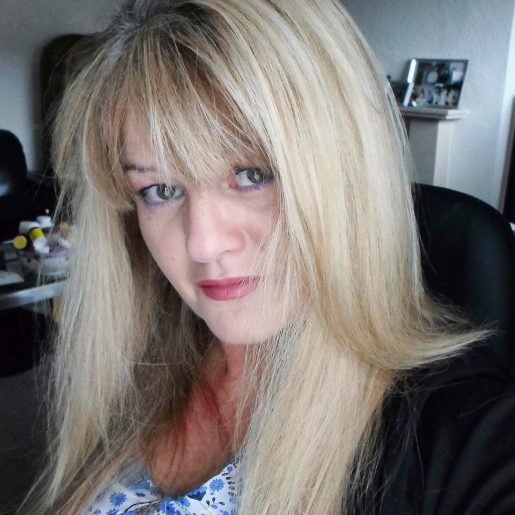
Hi, Terry, good to see you here, I’m looking forward to our chat.
Thanks for inviting me, Judith.
Tell us why you chose to write in your particular field or genre? If you write more than one, how do you balance them?
I’m not sure I have ever chosen a genre, as such; I just choose a story I want to write from the few currently in my head, and worry about what category it fits into afterwards. Yes, I’m a book marketing nightmare! But they’re always based around the connections between people. Interactions within families are often the most complex and interesting of relationships, with the most potential for love, jealousy, resentment, etc, so the family saga aspect of my novels evolved of its own accord, and I think reached its zenith with The House of York, though I am not finished with it yet! Sometimes my books fall into different genres, such as psychological drama/thriller, or my current WIP which has a post-apocalyptic setting; I suppose I write in more than one genre, yes, but those might all occur within one book. I know I ought to think about balancing it better *holds hand out for slapped wrist*.
(Laughing!!! – not slapping wrist)
How many unpublished and half-finished books do you have?
Nine or ten unpublished, that I wrote in the days before Amazon Kindle, and about three that I’ve started since, but given up because my heart was not in them.
What was the first book that made you cry?
The Snow Goose by Paul Gallico, I think. I read it when I was about sixteen, after seeing the TV dramatization with Jenny Agutter and Richard Harris, and cried buckets at both. Later, in my early twenties, there was Mirage by Andrea Newman. It’s about a woman with an unfaithful husband, who leaves him when she can’t stand it anymore. She tries so hard to build up a new life but, some time later, accepts that she will never be happy without him. She contacts him and begs to be able to see him, just sometimes, even though he has married again; she ends up as his mistress. It’s heartbreaking. I found the thought of not being able to move on from a broken relationship quite terrifying; maybe the book influenced my own ‘recovery rate’ later in life! Most sinisterly, the dedication in the Penguin paperback reads simply, ‘For Terry’. How about that, eh?
How about that! And sinisterly- great word – wonder if you can copyright a word?
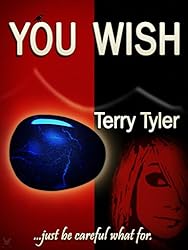
What do you think is the most difficult thing about writing characters from the opposite sex?
Judging by some of the books I’ve read in which it’s been done badly, I’d say it’s understanding that there is more to writing someone of the opposite sex than giving them an appropriate name, describing their lustrous auburn tresses/strong broad shoulders, then writing them out of your own head. You’ve got to understand what makes the opposite sex tick, the differences between the sexes, how men talk to each other when there are no women around, and vice versa.
Good answer! In that case how do you select the names of your characters?
Sometimes they arrive in my head with their name attached. If they don’t, I try out lots of different names according to social class, generation and my own preferences, until I find one that ‘sits’ right. I am careful not to have any main and secondary characters with similar names, or those starting with the same letter, as this can be confusing for the reader.
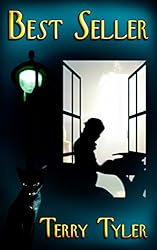
What are some ways in which you promote your work? Do you find that these add to or detract from your writing time?
I am a bit lazy/not dedicated enough about promotion. I detest Facebook, have never used Google +, Pinterest or most of the other sites that we’re ‘meant’ to use for spreading the word. I don’t do paperbacks because I would rather watch ten solid hours of Celebrity Big Brother than do literary festivals and signing sessions, which is, I believe, one of the main ways in which ‘indie’ authors sell them. I can’t see myself hawking them round independent bookshops, either; sales is not my forté. I rely solely on Twitter, book blogs, Amazon visibility and word of mouth. This detracts from my writing time in that I do all my Twitterly and blog stuff first thing, and it often takes more time than I intend, because I enjoy it. On the other hand, I turn on my laptop as soon as I get up, while I’m letting my first coffee of the morning do its stuff, so in a way it ‘warms me up’ for the writing day!
What do you like to read in your free time?
Historical fiction is a great favourite, if it’s very well researched and teaches me about the era. I like my histfic quite heavy: battles, feuds, struggles against authority, the settling of old scores, the dark and desperate. My other favourite genre is post apocalyptic; I love to read anything about survival in adverse circumstances, so I also like polar and seafaring adventures, as long as they go horribly wrong. I love good zombie fiction, and some general contemporary dramas, if they’re edgy and realistic. I’ll read horror type thrillers, too (I do love a good psychopath), but not paranormal/supernatural. Not interested in things that go bump in the night. Apart from zombies.
An eclectic mix then, Terry. But zombies! (shivering) Your enthusiasm almost makes me want to give the genre a go… almost.
So, what projects are you working on at the present?
I’m currently editing the first book in my post apocalyptic series. It’s about a targeted depopulation plot that goes wrong. As touched upon in your first question, it’s still very much a character-orientated drama, and centres around my 34 year old protagonist, Vicky, her boyfriend and 16 year old daughter, and various friends. As soon as I’ve sent it off for test/proofreading I shall start the next one; I plan to have the first two books ready to go before I publish the first, so the second can be released very soon afterwards, because I hate waiting six months for the next instalment when I’m reading a series. I am not quite sure how the whole thing ends yet; I’m trying not to worry about this too much… it might end prematurely if no one likes it!
What do your plans for future projects include?
Three of my books are contemporary family sagas based on events from history: Kings and Queens and Last Child, which is my updated story of Henry VIII, his wives and children, and The House of York, which was inspired by the Wars of the Roses. I want to write another one, based on the life of Henry II and his four sons. That’ll be next, after the current series. I think. Depends what else pops into my head, really. I’ve been semi-planning a book set during the 14th century for a while, but am scared about writing histfic in case I can’t do it well enough.
![Kings And Queens by [Tyler, Terry]](https://images-eu.ssl-images-amazon.com/images/I/51CAIfQ3sML.jpg)
![Last Child by [Tyler, Terry]](https://images-eu.ssl-images-amazon.com/images/I/51SGKMhn8yL.jpg)
![The House Of York by [Tyler, Terry]](https://images-eu.ssl-images-amazon.com/images/I/51eMB7tPzVL.jpg)
Do you think someone could be a writer if they don’t feel emotions strongly?
That’s an interesting question, and one I’ve sat here and thought about for a while. My answer is this: I think that those who have the urge to create, be it novels, poetry, music or painting, tend to feel emotions strongly, per se. The two go hand in hand. I’ve read novels in which the writer clearly has no idea about the emotion they aim to portray; out come the clichés and stock reactions. On the other hand, feeling emotions deeply doesn’t necessarily mean you will be a good writer. It’s all about whether or not you can get what’s in your head onto the paper, in such a way that others want to read it.

Do you try more to be original or to deliver to readers what they want?
About 75%-25%, I think. I can only write a book if I’m madly enthusiastic about it, and, alas, that book may or may not appeal to the people who liked the previous one. However, once I start writing I do try to write as a reader, if you like, and remain aware of what makes me enjoy a book. For instance, in my current WIP, I originally had the chapters alternating between the past and the present. Half the story was about the build up to the virus to end all viruses, the other half taking place in the post-pandemic world. Ten chapters in, I realised that every time I moved forward to ‘afterwards’, I was taking the reader away from build up to the disaster. So I moved it all around and put it in straight chronological order.
How do you feel about ebooks vs. print books and alternative vs. conventional publishing?
I read almost everything on ebook, it’s my choice every time. I love the convenience, the price, the facilities on the Kindle app, everything. The only downside is that I also love rooms filled with books, and 95% of those I’ve bought in the last five years are hidden away on my tablet.
As for alternative vs conventional publishing, all that matters is the words on the page, not who published them. If a book is great, it’s great, and if it’s mediocre, it doesn’t matter how it’s dressed up. I think self-publishing will only lose its stigma when everyone thinks like this, and realises that, in these days when anyone can set themselves up as a publisher, with independents and vanity presses popping up everywhere, ‘getting published’ is no longer necessarily an indication of quality. A few months ago, a book blogger expressed surprise that I had not been ‘snapped up’ by a publisher; she meant it as a compliment, most kindly, but (after I’d thanked her!) I took the opportunity to explain to her that writers who self-publish usually do so by choice (by which I mean that we don’t submit our books to publishers), because we want to have control over every aspect of our work. I know that some writers go with a publisher simply to give their books more credibility, and, indeed, it will take a long time before all book bloggers, reviewers and readers understand that self-published doesn’t mean substandard, and that there is a world of difference between a book deal from Simon & Schuster, a contract with a decent independent, and one with Joe Bloggs Publishing who doesn’t even recognise slack editing.
How do you find or make time to write?
Writing is what I do; it’s all the other stuff I have to make time for. I haven’t done the ironing since 2014. I think my husband’s been waiting for his dinner since around then, too. (I did the ironing this afternoon, really; I’m having a ‘doing all the other stuff’ day!)
(Laughing!) I call it ‘domestic trivia’. That puts it in its place.
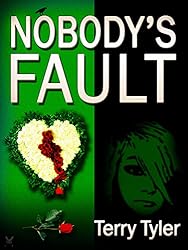
Do you read your book reviews? How do you deal with bad or good ones?
I always read them. Good ones are lovely, of course, absolutely make my day, but all reviews are helpful. Obviously, nobody wants a bad one, and sometimes they can be irritating (like, when someone who usually reads crime thrillers complains that a light contemporary drama isn’t thrilling enough, which would be a bit like me reading a vampire book and giving it one star because I don’t like stories about vampires), but there are a hundred different ways to read everything, and some people will love what you do, some will like it, some will think it’s okay, and some will think it’s rubbish/boring. I don’t agonise over bad ones. I admit to reading them by peeping through my fingers like I do with scary films, though.

Would you like to talk about your latest book here?
My most recent publication is The Devil You Know.
![The Devil You Know by [Tyler, Terry]](https://images-eu.ssl-images-amazon.com/images/I/51KZVR8tggL._SY346_.jpg)
It’s a psychological drama about five people who suspect that a local serial killer might be someone close to them. There’s a mother who thinks it’s her son, an abused wife who thinks it’s her husband, a young chap who suspects the worst about his friend, etc etc. It’s not a police procedural type crime thriller, as the actual detection of the killer plays only a small part in the whole novel. I’m very pleased that the reviews have been some of the best I’ve ever received, and it appeared on four book bloggers’ ‘Best of 2016’ lists. Yes, I know I should capitalise on that by writing something else in the same vein, but….I refer you back to Question One!
Thank you for inviting me to take part in your author interview feature, Judith.
Thank you for being here, Terry. It’s been fascinating listening to you.
Connect with Terry here:
https://twitter.com/TerryTyler4
http://terrytyler59.blogspot.co.uk/
http://terrytylerbookreviews.blogspot.co.uk/
https://www.goodreads.com/author/show/5821157.Terry_Tyl
And I hope you’ll excuse a little self – promotion of my own family sagas published by Honno:
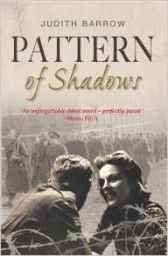
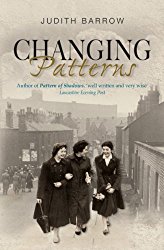
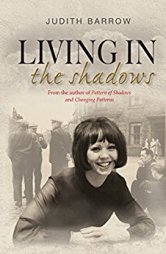
And, coming soon – on the 17th August – the prequel to the trilogy:
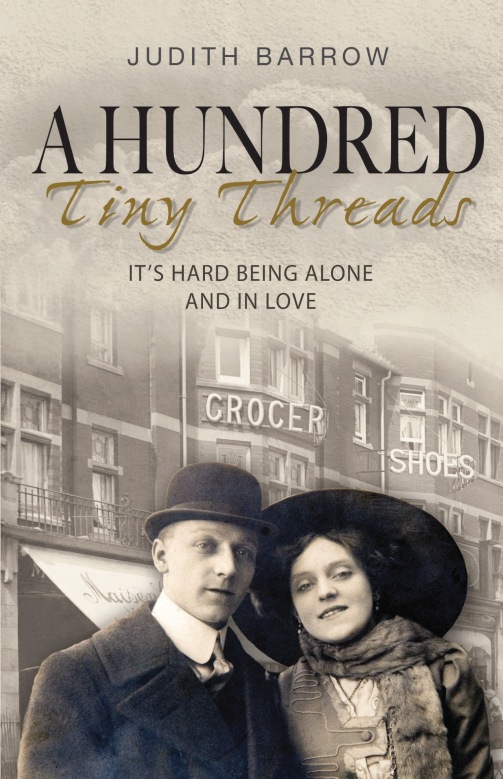



Pingback: My Series of #FamilySaga Authors. Today with Terry Tyler #author — Judith Barrow | The Little Blue Balloon
Many thanks
LikeLike
Lovely piece ladies.
LikeLiked by 1 person
Thank you, Rosie
LikeLike
Thanks so much for giving me the opportunity to blather on about myself, Judith! xx
LikeLiked by 1 person
I like a good blatherer, Terry. xx
LikeLike
Great interview, ladies 🙂
LikeLiked by 1 person
Thanks Cathy.
LikeLiked by 1 person
Lovely interview – thank you both.
LikeLiked by 1 person
Thank you, Mary.
LikeLiked by 1 person
Thank you, Mary, Cathy and Rosie xx
LikeLiked by 2 people
Thanks to you both for the lovely interview, and I’m impressed with the books!
LikeLiked by 1 person
Thanks Dianne. Terry’s books are brilliant.
LikeLiked by 1 person
Thanks very much, Diane 🙂
LikeLiked by 1 person
Reblogged this on Judith Barrow.
LikeLike
Interesting interview. Andrea Newman? Rang a bell straight away. Who could forget Bouquet of Barbed Wire?
LikeLiked by 1 person
Bouquet of Barbed Wire… I know! It was innovative in it’s time. Thanks for dropping by.
LikeLiked by 1 person
Oh, that was great, wasn’t it?! I read all her books in the 70s and 80s, loved them!
LikeLiked by 1 person
There are some really interesting points in here. The question about genre was fascinating for me – it’s so hard to think about where things will fit on the shelf when you know the story you want to write. The answer is to write it anyway and worry about that later. Thank you for solving a current conundrum! Really well put.
LikeLiked by 2 people
Thanks for this, Jan. Terry has a good point. Genres can cross over so many times.<3
LikeLiked by 1 person
Jan, I’m glad it helped! It’s been my problem since I started this lark – but sometimes, if you think about your favourite writers, they don’t quite slot into a pigeonhole, either. Thanks 🙂
LikeLiked by 1 person
You’re right about that. Funnily enough, when we went to Waterstones in Brighton, the shop was so huge that the same books were in different places, which was fascinating! 🙂
LikeLiked by 1 person
I enjoyed that interview, Terry sounds like a truly independent author, confident in doing things the way she wants to. I do like Facebook, but don’t do Twitter, but I heartily sympathise with Terry, we shouldn’t feel we have to DO all the promotional things we’re ‘supposed’ to do, my brain couldn’t take the strain.
LikeLiked by 1 person
Thank you so much for dropping by. Terry does indeed know her own mind as an author; her books are brilliant. And I do agree about doing all the promotional stuff – it takes away writing time.
LikeLiked by 1 person
I think it’s up to the individual and how determined they are to get sales, TS. We all want them, but I’d rather spend the majority of my time writing that thinking of new ways to promote. In the past, I’ve seen writers promote and promote the same book for years, until promotion becomes what they DO, rather than writing. If people like one book of yours, they’ll buy the others anyway. But there have to be others for them to buy!
LikeLiked by 1 person
Good answer, Terry. Must take notice!!
LikeLike
That’s interesting that you don’t do paperback copies of books Terry. It’s good to focus on what you feel suits you. In my case, I’m going to try paperbacks too, (I intend to anyway!) hopefully self-publishing this year.
LikeLike
What an entertaining read. Terry made me laugh a few times–thanks for that! I love this series of posts, Judith.
LikeLike
terry does have a quick wit. And she’s a brilliant writer, Adrienne.
LikeLike